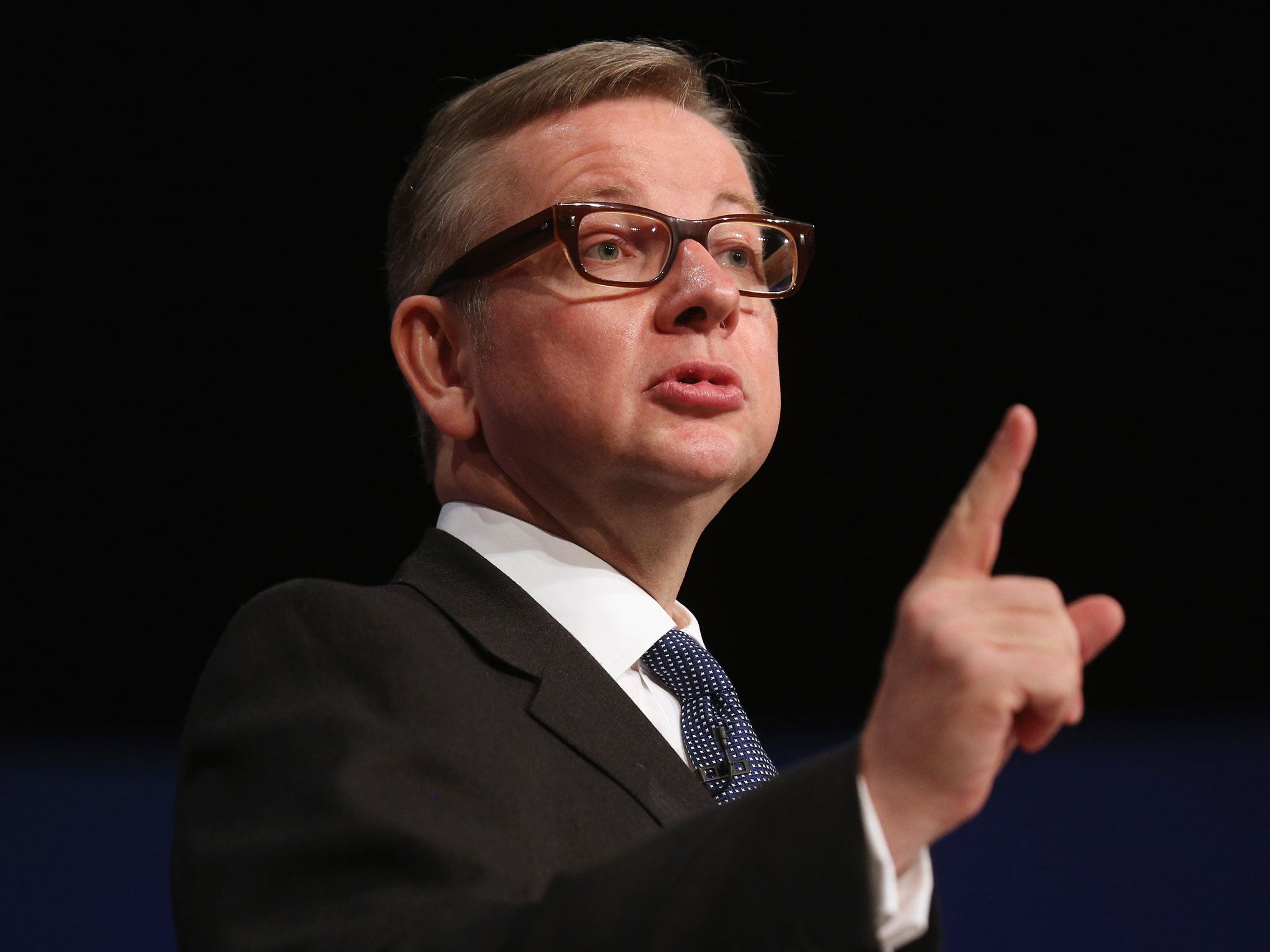Prisoner violence is a warning to Government – our prisons are overcrowded and underfunded
Michael Gove, who has proved himself a compassionate reformer as Justice Secretary, now faces his toughest challenge – to keep prisoners safe

Your support helps us to tell the story
From reproductive rights to climate change to Big Tech, The Independent is on the ground when the story is developing. Whether it's investigating the financials of Elon Musk's pro-Trump PAC or producing our latest documentary, 'The A Word', which shines a light on the American women fighting for reproductive rights, we know how important it is to parse out the facts from the messaging.
At such a critical moment in US history, we need reporters on the ground. Your donation allows us to keep sending journalists to speak to both sides of the story.
The Independent is trusted by Americans across the entire political spectrum. And unlike many other quality news outlets, we choose not to lock Americans out of our reporting and analysis with paywalls. We believe quality journalism should be available to everyone, paid for by those who can afford it.
Your support makes all the difference.It has been known for some time that the British penal system is crumbling, but no picture could be bleaker than that painted by new figures exposing the extent of failure inside our prison system.
As The Independent reveals today, since 2010 the numbers of incidents of deaths during incarceration, sexual assaults in prison, knife attacks and prisoner self-harm have almost doubled – and all have increased sharply in the last 12 months. Prisons in the UK are “on the verge of collapse”, experts warn, as violence between inmates, abuse and suicide attempts all rise.
There can now be no excuse for failing to face up to difficult truths: when prisons are overcrowded and funding for staff is falling, there is direct harm caused to inmates. According to the Prison Reform Trust, 40 per cent of prisoners are now held in institutions with more than 1,000 places. Since 2000, the ratio of prison officers to prisoners has dropped from 1:2.9 to 1:4.8. No wonder devastating incidents such as suicide attempts or self-harm – the number of attempted hangings has risen from 580 in 2010 to 2,023 in 2015; the number of attempted overdoses over the same period rose from 1,414 to 2,523 – are becoming so commonplace. It’s not just that these conditions exacerbate the difficulties of life inside for prisoners – many of whom will struggle with mental health conditions – but also that prisons are not sufficiently staffed to support the vulnerable individuals they house.
Some 18 months ago, the Howard League for Penal Reform sounded a warning about rising numbers of prison deaths and incidents of self-harm. Speaking in October 2014, Frances Crook, the chief executive of the think-tank, said that ministers should be held accountable for their decisions, which had resulted in a “lethal cocktail of drastic staff cuts… gross overcrowding and rising prison numbers” which was the cause of prison violence. “I have never seen a public service deteriorate so rapidly and so profoundly,” she said. And now the situation has worsened.
A prison system in which the prisoner finds themselves at risk of attack is not working, for it is failing in its most basic of duties: to keep prisoners safe.
In his term as Justice Secretary, Michael Gove has proved himself something of a reformer, though much of that has involved carefully undoing the inhumane work of his predecessor Chris Grayling. He has looked at ways to keep low level offenders, particularly those who are struggling with drug and alcohol addictions or have mental health problems, out of jail entirely. He has overturned the books ban for prisoners.
Now he faces his toughest challenge in the job. Surrounded by colleagues that still slaver at the prospect of getting “tough” on criminals, he must accept the evidence which now clearly demonstrates that prisons are dangerously underfunded.
The purpose of prison is not only to protect the public but, importantly, to rehabilitate. Where staff are under such significant pressure that they cannot prevent suicide attempts or stabbings, the chance to work on improving the life chances of former criminals is also being lost. In times of austerity this pressure can only be released in one way – by sending fewer people to jail. That would be a sensible position from Mr Gove to set out.
Join our commenting forum
Join thought-provoking conversations, follow other Independent readers and see their replies
Comments